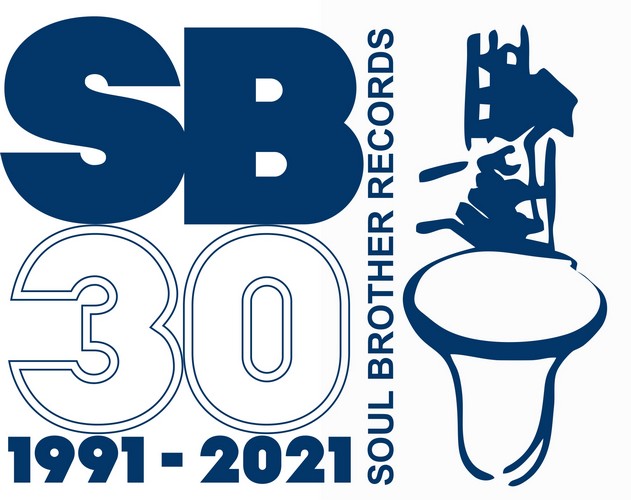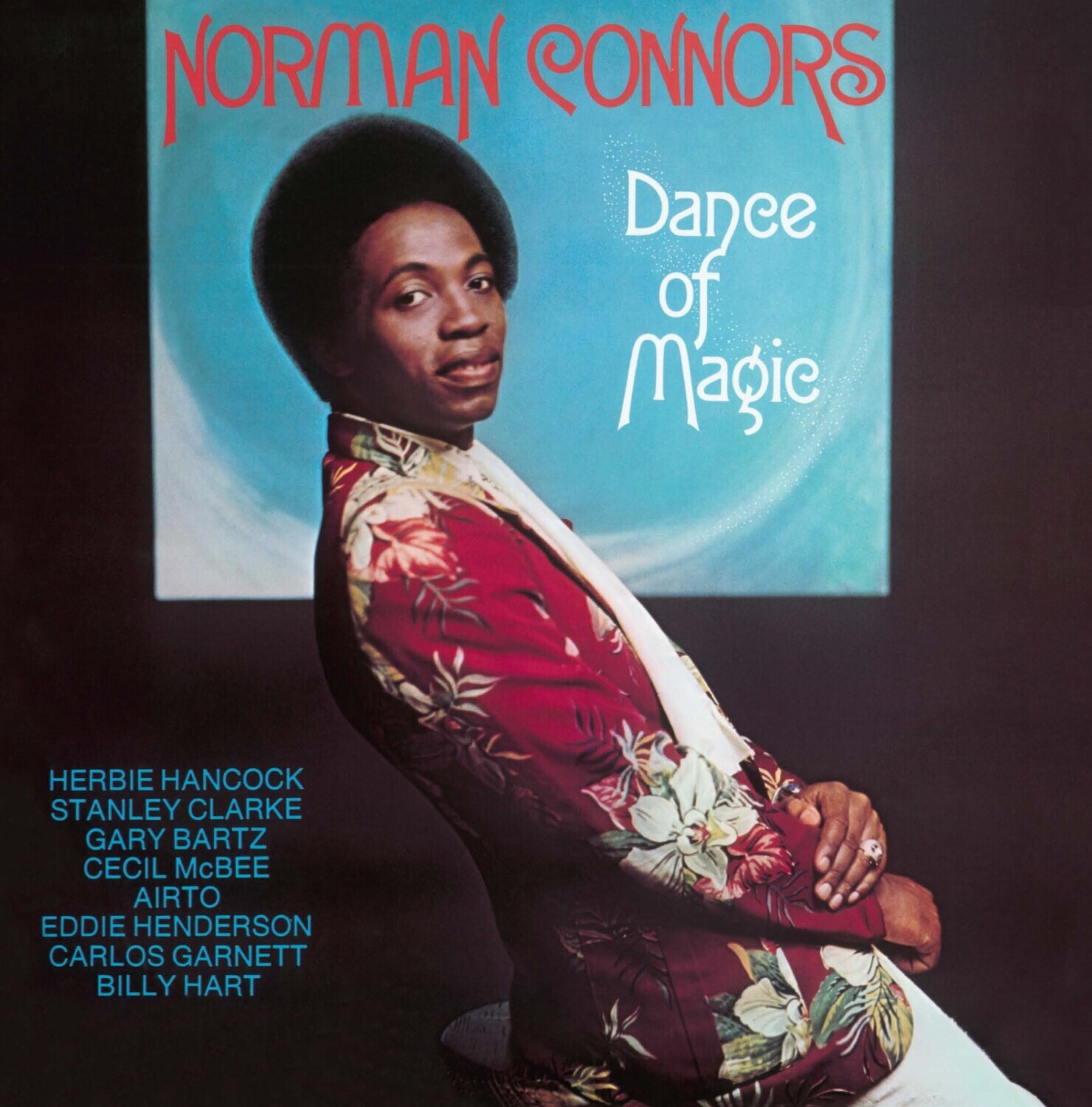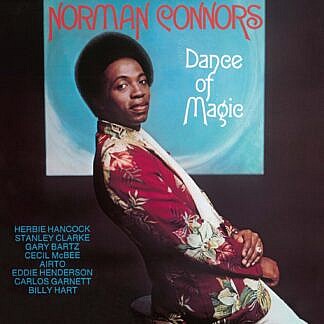Norman Connors’ first release as a leader, Dance of Magic was originally released on Cobblestone with different artwork. Pure Pleasure have done justice to the later Buddha issue from the same year, showcasing a slick looking Connors on the cover, grinning wryly in a floral-patterned smoking jacket with a loud and proud afro. Released in 1972, the set features a stellar cast of soloists and respective leaders of their day: Herbie Hancock, Airto, Stanley Clarke, Gary Bartz, Cecil McBee, Eddie Henderson, Carlos Garnett and Billy Hart all add their own individual flare to the occasion. The music is texturally rich and well-staffed, full of ornate detail and reactive playing. The number of musical takes and sheer volume of sound in some of the tracks create the image of thick brush, with Connors’ drumsticks almost hacking their way through the musical undergrowth like machetes clearing a path through deep jungle; verdant musical thicket. Intricate combinations of instrumentation and percussion meld together cohesively between the coterie of players on the recording, a harmonious date that expresses a large, well populated sound but doesn’t overcrowd or overpower; even the dueling upright basses (both McBee and Clarke playing at the same time) on set opener Dance of Magic is stylistically appropriate, less so overkill.
No parallels can be drawn between his later output on Buddha and Arista, where Connors delved into soul and disco on albums such as Mr C, Romantic Journey and This Is Your Life. This release is more spiritual and freer than these albums, which are worlds away from this bold-spirited and ancestrally aware early seventies output. It decants a sound from the avant-garde and post-bop sound worlds, sharpened with pan-African and spiritual themes and framed within a post-civil rights context. The players photographed on the back of the cover sport afros, dashikis and other traditional African dress, while the music is littered with numeous West African sonic markers, ringing with the sounds of native percussion and equatorially lilted chants. Side A features the sprawling title track Dance of Magic, an extended piece of music which spans 21 minutes and and sees plenty of stretched out solos from Garnett, Henderson, Bartz and Hancock—in that order. A blistering composition that marshals latin rhythms, electronic textures and a mystical characteristics to create nondenominational yet deeply spiritual jazz. Personal highlight Morning Change is a luscious composition featuring deep, bovine bass from McBee that groans and slides, alongside shimmering percussion from Airto and a pleasantly recognisable form, accentuated by Hancock’s glistening electric keys.
Like the progression of Mtume from his fiercely polemical stylings (Alkebu-Lan Land of the Blacks, Rebirth Cyle) to some of his less agitated output towards the tail end of the same decade, or even Herbie Hancock’s Mwandishi period that gently dovetailed into his milder and funkier Headhunters output, Connors would instigate a similar transition in his musical career. In a few years, he would be recording out and out soul and disco albums, consigning spiritual jazz to his back catalogue—albeit releasing a live album of him and Pharoah Sanders at Montreux in 1981 on Arista Records. Dance of Magic is just as bold and experimental as other contemporaneous early seventies jazz; spiritually awakened; out there; altered by the flavours of the day; civil rights; LSD; black power; Bitches Brew, and other enlightened Afro-American forms of expression. The music in turn speaks like a narrative of Connors’ subjective interpretation of the avant-garde direction of jazz at this time, which he had since come to terms with after stints working with Pharoah, Sam Rivers and Sun Ra. Yet in years to come Connors would file down these rough edges in favour of a more commercially accessible sound like many jazzmen of their day, who were able to build bridges from fire-spitting and socially conscious statement music to chart topping disco cuts without so much as a blink of an eye. This album, however, is pleasingly raw, a sign of the times and an unrestrained, unimpinged expression brimming with virtuosic talent.








Reviews
There are no reviews yet.